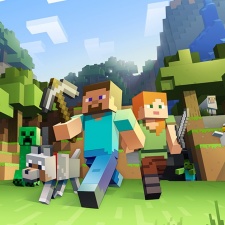Since 2012, Valve has taken a number of steps to make its Steam platform as open as possible.
Starting with Greenlight in August of that year, the company stopped treating its marketplace as a walled garden where only projects selected by the Bellevue-based PC giant were deemed worthy of appearing on Steam. It turned over some of that power to the community; Steam's audience could suddenly decide which titles should be appearing on the platform.
The following year, in 2013, Valve further lowered the barrier to entry with Early Access, allowing developers to release unfinished games with the aim of developing with the community.
And then, of course, earlier this year, the barrier to entry was dropped altogether with an open-platform policy that is still the subject of much debate. Over this six-year period, the number of releases on Steam has grown exponentially with around 200 titles each and every week hitting the digital storefront.
In trying to make releasing a game more accessible, Valve has made it much harder for developers to get any attention, a phenomenon dubbed 'The Steampolcalypse' by some.
This slow lowering of the barrier to entry can all be traced back to one game - Minecraft.
There's no doubt that Notch's survival and crafting project influenced the decision to launch a scheme like Greenlight. Here was a game that came out of nowhere and took over the world - but went completely against the conventional wisdom of the market at the time. At a point where most major publishers thought consumers wanted technically brilliant, gorgeous and fast-paced titles, here was an ugly, super technical and slow game. Any developer relations person who tells you that they would have signed Minecraft had they seen it before launch is - honestly - a damn liar.
Minecraft became popular through its alpha and beta releases, creating a groundswell of excitement and enthusiasm that has not been replicated since. Fair play to Valve for recognising that its community might know a thing or two and that the company might not always know best and creating Greenlight to allow games that were popular with the community to reach a wider audience.
Through this process, Early Access and now the open-platform policy, Valve has tried incredibly hard to not accidentally block the next big thing from release. And while it is incredibly easy to release on Steam in 2018, actually getting any attention paid to your game is exceptionally difficult. What started out as an attempt to make releasing games easier has turned into Valve simply letting go of the wheel and allowing for anything to come on its platform.
As a result, I feel we are now beginning to witness the start of Steam's downfall. And before you start leaving an angry comment, I'm not for a second claiming that the platform is dead. Rather, Valve's marketplace has been constantly rising and increasing in popularity but now it appears that things could be heading in the other direction for the first time. A report from SteamSpy earlier this year pointed to the platform's userbase dropping significantly, too, again likely due to a combination of factors including Fortnite's success.
Steam's monopolistic position on the PC games market has long-irritated some but was accepted by the majority because it was a platform that worked for most people. Slowly it has transformed into a marketplace that no longer has the same role. Developers and publishers were fine giving Valve 30 per cent on sales because the sheer exposure projects received by virtue of being on Steam was worth the cost of admission. Now, it's harder to be seen and that money no longer is a worthy sacrifice for many. What was once a walled garden is now an overgrown space, with many companies suffering as a few games get all the sunlight.
This is arguably one reason why some of the major players in the PC games market are deciding to launch via their own platforms - the other factor being Fortnite being a massive hit despite not being on Steam.
It's no coincidence that Activision has finally started releasing Call of Duty on Battle.net, Bethesda is rolling out Fallout 76 via its own platform, and CD Projekt RED is launching The Witcher card game Gwent and single-player RPG Thronebreaker on GOG.com in this year of all years
With new marketplaces like Kongregate's Kartridge or the blockchain-powered Robot Cache entering the sector as well as communications app Discord starting to sell games, competition in the PC games retail space is about to heat up - and it looks like Valve no longer has the edge required to maintain its supersized slice of the pie forever.
This isn't game over for Steam, and there's no telling what Valve will do with the platform in the future. But this is the point where the wave breaks and rolls back - and that might be a good thing for the PC games space.

















